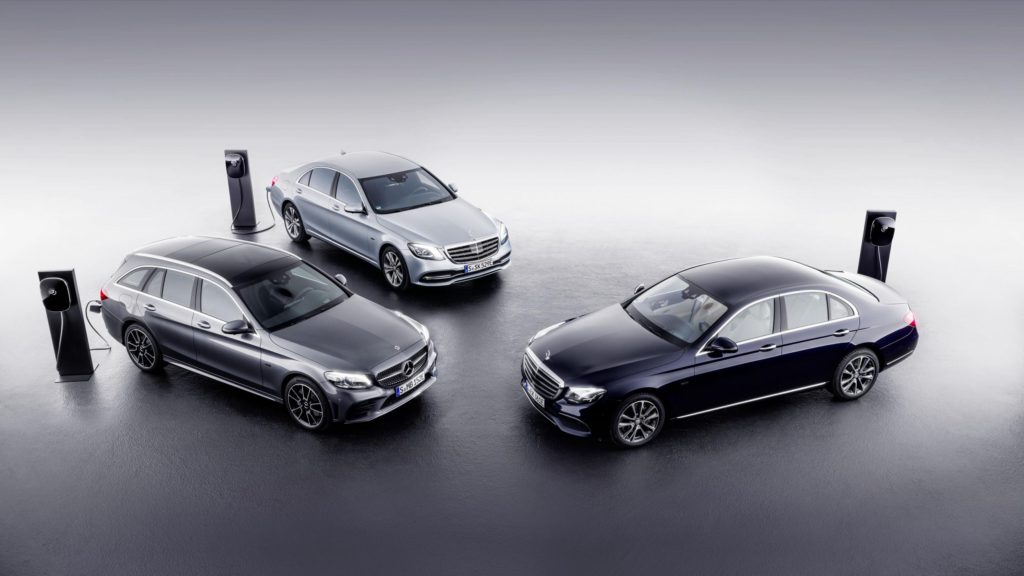Daimler and Geely extend collaboration to hybrid powertrains
25 November 2020

25 November 2020
The respective parent companies of Mercedes-Benz AG and Volvo Cars, Daimler AG and Geely Holding Group, have announced plans to jointly develop highly efficient powertrain systems for next-generation hybrid vehicles.
Both groups will use their global research and development (R&D) networks to work together on a next-generation petrol engine for hybrid applications. Areas of potential cooperation include engineering, sourcing, industrialisation and efficiency measures. The engines will be produced at the companies’ powertrain facilities in Europe and China, and could be used by the Mercedes-Benz brand, as well as Geely’s portfolio of brands, which includes Volvo and the London Electric Vehicle Company (LEVC).
This new project with Geely aligns with Daimler’s recently announced strategy for Mercedes-Benz. As part of ′Ambition 2039′, the brand is pushing ′Electric first’, with the electrification of all model variants and vehicle types.
Markus Schäfer, member of the board of management of Daimler AG and Mercedes-Benz AG, responsible for Daimler Group research and Mercedes-Benz Cars COO, said: ′Our goal continues to be CO2-neutrality. By 2039, our ambition is a completely carbon-neutral new passenger car fleet. The consequent electrification of our powertrain portfolio therefore is an integral part of our drivetrain strategy. To this end, we are systematically converting our portfolio, so that by 2030 more than half of our passenger-car sales will be comprised of plug-in hybrids or purely electric vehicles. We are looking forward to the future, when, together with Volvo’s ICE unit and Geely, we will further extend our synergies in the field of highly efficient drivetrain systems in China and the world. At Mercedes-Benz, the newly established unit Mercedes-Benz Drive Systems will spearhead the project and create cost efficiencies.’
Confirming collaboration
Volvo and Geely themselves revealed, late in 2019, their intention to merge their existing internal combustion engine (ICE) operations into a stand-alone business in order to establish a new global supplier that will seek to develop next-generation combustion engines and hybrid powertrains.
At the beginning of 2020, Volvo Cars also acknowledged that there had been initial discussions with Daimler about a potential collaboration on engines. However, there were no concrete plans at that time, according to the German publication Automobilwoche, which broke the news, citing management sources. The Swedish carmaker said in 2017 that 2019 would see an end to launches featuring vehicles without some form of electrification.
An Conghui, president of Geely Holding Group and president and CEO of Geely Auto Group said: ′Clean and highly efficient powertrains are integral to our core competitiveness. With our full commitment to electrification supported by our new ′Sustainable Experience Architecture (SEA)’ as the core pillar, we will continue to seek competitive advantages in R&D, production, supplier management and other fields, and focus on the development of premium electrified vehicles. This project reflects the need for economies of scale and targeted research and development investment in clean and highly efficient powertrains and hybrid drive systems and their applications. Together with our partner, we will jointly develop the next generation of advanced technologies in order to remain at the top in the industry in times of wide-ranging change.’
Smart business
Daimler is already in an existing collaboration with Geely, following the sale of 50% of the Smart brand to the Asian carmaker in January. Daimler and Geely formally established the joint venture in 2019, and the partners agreed that the worldwide Mercedes-Benz Design network will be responsible for styling the new generation of Smart vehicles, with engineering from Geely global engineering centres.
This plan will also see Smart expand its model line-up and enter the B (small-car) segment with a new range. Production in China will allow the marque to give itself a foothold in what is the world’s largest car market and adds another electric option to Geely’s portfolio.